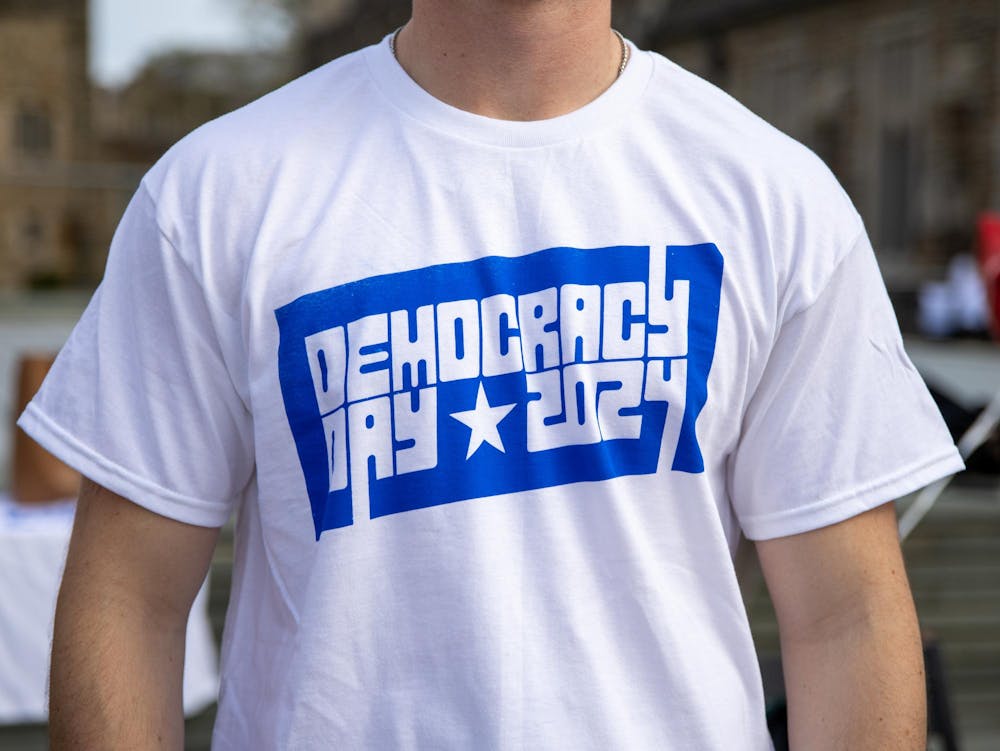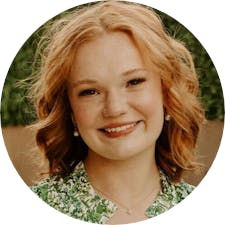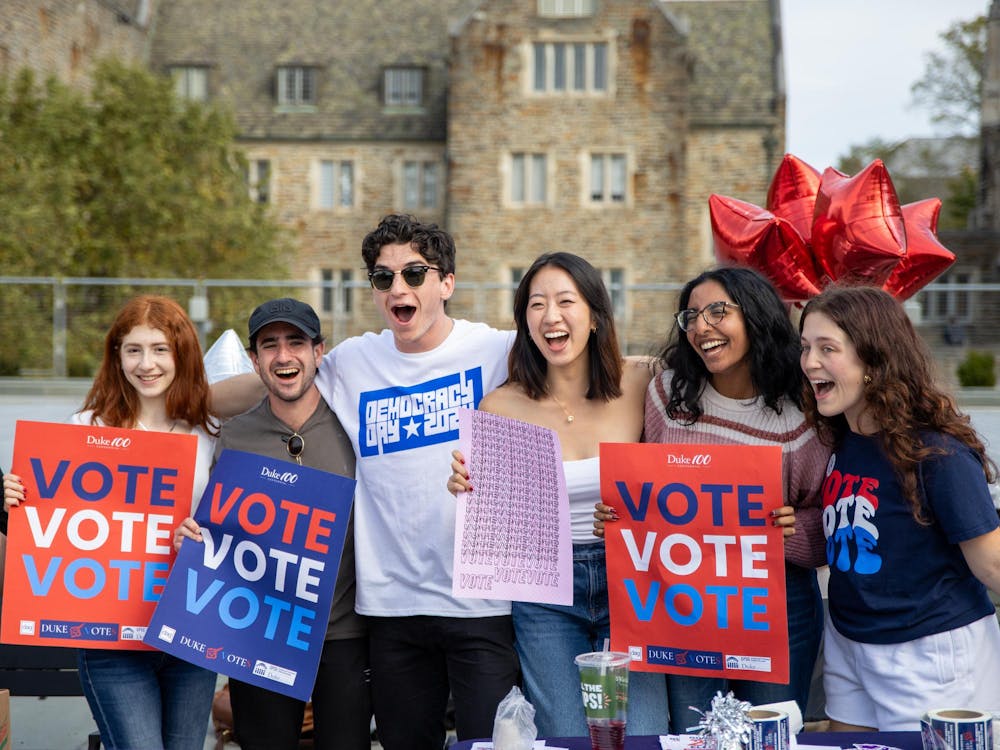“Have you voted yet?” called Duke Votes’ student volunteers.
Members from Duke Votes, Duke Student Government and Duke Graduate and Professional Student Government reminded the University community of the importance of voting during its Friday Democracy Day event, a campus-wide civic engagement initiative aimed at encouraging students to vote in the 2024 general election.
The event was held on the penultimate day of early voting in North Carolina and the last day of full polling hours at the Karsh Alumni and Visitors Center.
From Votechella to tabling on the Bryan Center Plaza and a conversation with Durham Mayor Leonardo Williams, take a look at some of the scenes across campus on Democracy Day.
Bryan Center Plaza, 11 a.m. to 1 p.m.
Filled with Democracy Day stalls adorned with American flag-colored balloons and speakers playing AC/DC and Chuck Berry, student representatives brought the hype to vote on BC Plaza.
One stall, run by Duke Votes, displayed a spread of materials, including early voting stickers, a sample ballot and voting guide pamphlets. Community members stopped to browse through the goodies and obtain complimentary coffee, pizza and Krispy Kreme doughnuts from the neighboring stall.

Super G Print Lab, a Durham printmaking studio, worked in collaboration with Duke Arts to bring two screen printers to campus. Free T-shirts with “Vote! 2024 Democracy Day” designs were up for grabs.

Spirits were high. As morning classes ended, a crowd of students developed around the stalls with the sound of laughter and conversation growing louder than the music and the melodies from Votechella on the BC Stage.
“The energy has been outstanding. People are excited [and] engaged,” said junior Jackson Streit, associate vice president of DSG’s campus life committee. “This is my first time getting to vote, and it was a meaningful moment for me to get to go do that, so I want to be able to share that with everyone else.”

Gabriel Kennedy, director of external advocacy for GPSG, emphasized Duke Votes’ position as a non-partisan organization, noting that the goal is to get students to the polls.
Likewise, Democracy Day Co-Lead Katelyn Cai, a junior, noted that the greatest obstacle to achieving “100% voter turnout” was “getting people to vote before it's too late.” She added that provisional challenges, including Karsh closing after early voting and students not having a valid ID, impede on Election Day voting.
“Vote,” she urged. “Vote like your life and a lot of other people’s lives depend on it, because that’s the stake of this election.”
Griffith Theater, 1:30 p.m. to 2:30 p.m.
Durham Mayor Leonardo Williams and Frank Bruni, Eugene C. Patterson professor of the practice of journalism and public policy, discussed the state of democracy in Durham and North Carolina in a Democracy Day Panel moderated by Cai.
The discussion focused primarily on the political forces in North Carolina, Durham and Duke that could influence the future of American democracy — a democracy that both panelists implicitly agreed would be healthiest if Trump loses the upcoming election.

Get The Chronicle straight to your inbox
Sign up for our weekly newsletter. Cancel at any time.
Bruni and Williams also noted other challenges to democracy, including increasing polarization and bias in society, as well as social media algorithms that create political echo chambers.
“I think that … society is sick,” Williams said. “And I don't want to be a pessimist in that, but if [we are] struggling to just have basic conversations without our basis of objectivity, then we have a problem.”
However, there’s still plenty of reason to hold out hope for a better future, the panelists noted. According to Bruni, the U.S. is “still a much healthier country than the overwhelming majority.”
Both Williams and Bruni noted the significance of youth voters, with this election cycle seeing a potential record-breaking turnout among voters ages 18 to 24.
“It's [Duke’s] obligation as arenas of ideas and knowledge to make sure students, whatever they're studying, are looking in an informed way of our current assumptions,” Bruni said.
By not voting, according to Williams, “what you're saying is you don't care about me and anyone else around you.”
Williams continued to explain the importance of voting given the stakes of this particular presidential election.
“People will say ‘oh, I’m still undecided’ — no. That’s either lazy, you’re not paying attention or you just have to get more serious,” he said, later adding that “this is not a political race, it's a race of morality, it’s a race of right and wrong.”
Bruni also acknowledged Lt. Gov. Mark Robinson’s gubernatorial campaign and its fallout following the bombshell CNN investigation released in mid-September, and its significance in potentially determining the 2024 presidential election.
“There’s a real open question as to whether the complete collapse of the Republican gubernatorial campaign is going to have a decisive effect,” he said.
Bruni further explained that “normally, the national Republican-Democratic turnout operations are echoed, kind of seconded by whatever’s going on in the governor’s race,” but that the Stein campaign — which he characterizes as “well-funded [and] well-run” — will “be looking to turn out the voters Kamala Harris needs.”
Given North Carolina’s status as a battleground state, Bruni said it’s hard to tell what exact impact local forces will have on the top of the ballot, adding that he could see the election swinging either way. However, Williams remained optimistic that North Carolina will swing blue and said he believes voters across political lines voted in overwhelming favor of Harris.
Other events throughout the day included a civic engagement fair, a political conversation between Duke Democrats and the Duke Ciceronian Society, a march to Karsh and a party at the polls.

Claire Cranford is a Trinity sophomore and features managing editor for the news department.
Tanya Wan is a Trinity first-year and a staff reporter for the news department.

